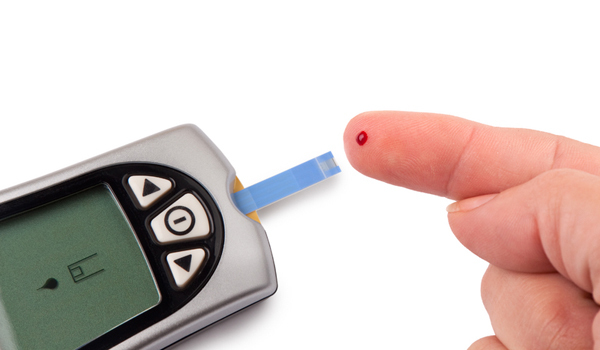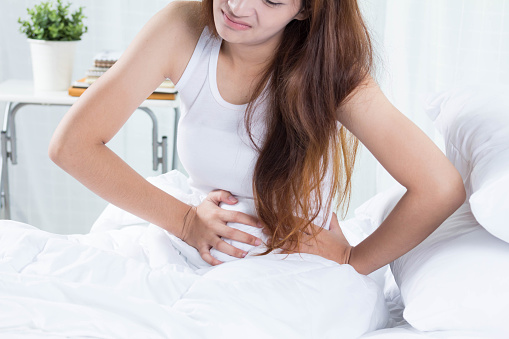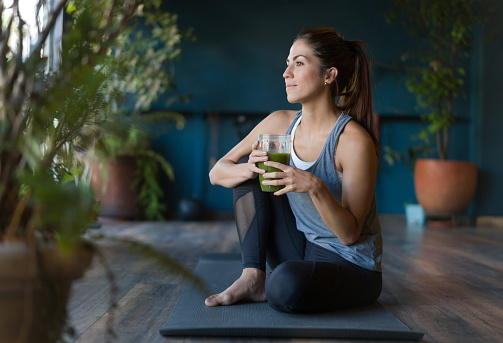Best Ways to Lower Your Blood Sugar
High blood sugar, also known as hyperglycemia, is often linked to prediabetes & diabetes. A condition in which your blood sugar is high, but not high enough to be classified as diabetes, is called prediabetes.
The human body normally manages blood sugar levels by producing insulin, a hormone that allows the body's cells to use the sugar that circulates in the blood. So, insulin is the most important blood sugar regulator.
There are several factors that can interfere with blood sugar management and lead to hyperglycemia.
An internal cause of high blood sugar is when your liver produces too much glucose, while your body makes too little insulin, so that your body cannot use insulin effectively. This latter is known as insulin resistance.
External factors include food, certain drugs, stress and a sedentary lifestyle.
Blood sugar management is especially important for people with diabetes, as chronically high blood sugar levels can lead to limb complications and even be life-threatening.
What Do You Feel if Your Blood Sugar is Too High?
It is important to listen to your body for the signs of high blood sugar. The following symptoms may indicate that your blood sugar is higher than normal, a condition known as hyperglycemia: Headache, Blurred vision, fatigue, Hunger, difficulty concentrating.
Very high blood sugar levels can lead to a life-threatening medical emergency and result in a coma, or other dangerous condition. Increased blood sugar over the years can lead to long-term effects such as poor wound healing, blood cell, nerve, and kidney damage, stroke, heart disease, and vision problems.
In most cases, low blood sugar (hypoglycemia) follows episodes of high blood sugar. Repeated episodes are sometimes thought of as the beginning of diabetes.
Those who have prediabetes may be prescribed medication to keep their blood sugar levels under control. There are also ways to naturally lower blood sugar. Keeping your blood glucose levels within a healthy range reduces the risk of diabetes complications. Insulin is needed by people with type 1 diabetes.
Best Tips To Lower Blood Sugar
Here are easy ways to lower your blood sugar levels naturally.
Eat Probiotic Rich Foods
A probiotic-rich diet can help manage your blood sugar levels. Probiotics are friendly bacteria that offer a multitude of health benefits, including improved blood sugar regulation.
Research shows that probiotic intake can reduce fasting blood sugar, glycated hemoglobin (HbA1c), and insulin resistance in people with type 2 diabetes. (healthline.com)
Interestingly, studies have found that the increase in blood sugar levels was more significant in people who consumed several species of probiotics and for at least eight weeks.
Foods rich in probiotics include fermented foods, such as: yogurt, kefir, tempeh, sauerkraut, kimchi.
Carbohydrate Intake
Paying attention to carbohydrate intake is important for people with type 2 diabetes. These carbohydrates are what cause your blood sugar to fluctuate potentially.
How many carbs per meal are ideal? Of course, it is adjusted to each individual. How much you exercise, your activity, your weight, and your age can all influence how long sugar stays in your system. A typical starting point for diabetics is to limit carbohydrate intake to 200 to 245 grams per day, which amounts to about half of your daily calories, which come from carbohydrates. Make adjustments according to your blood glucose reading, or as recommended by a nutritionist.
Carbohydrates are not found only in ordinary foods, such as potatoes, bread, and pasta. They're also in vegetables, fruits, sweets, and dairy, so you have to take all of them into account as well.
Drink More Water
Staying hydrated is an easy way of controlling your blood sugar levels. A study found that study participants who drank more water, were less likely to develop high blood sugar. The study found people who drank less than a liter of water per day were at an increased risk of developing blood sugar problems.
Water helps to flush glucose out of your body. Drinking a glass of water can be very helpful in thinning your blood sugar and lowering your blood sugar in a healthy way.
Increase Your Fiber Intake
High fiber is the key to a diet that lowers blood sugar. You can lower your blood sugar by increasing your soluble fiber intake. Focus on eating blood sugar stabilizing foods such as raw carbohydrates like whole grain bread or pasta, sweet potatoes, beans, lentils, beans, and non-starchy vegetables.
High-fiber foods can help you feel more full. That helps you avoid overeating or food cravings that could negatively affect your blood sugar. Men should aim for 30 to 38 grams every day, and women 21 to 25 grams daily.
Overcome Your Stress
Since stress affects blood sugar, it's important to find ways to deal with it, such as exercise, a hobby, or talk therapy. And avoid coping mechanisms that have a negative impact on your blood sugar, such as overeating













